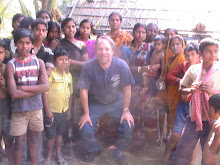An End to Pakistan--or a New Beginning?
For some time now, I have familiarized myself with several nationalities living in what is now Pakistan: Baloch, Sindh, Pashtun, Kashmiris, Gilgit Baltistanis, Punjabi Hindus, and others. Since Pakistan's creation in 1947--a statement by the Indian Subcontinent Muslim League that Muslims and Hindus cannot live together--these national groups have been chafing under various forms of oppression and the attempted eradication of their national characteristics.
Pakistan is an artificial, polyglot rump state that was once part of a large "Indian" entity; in 1971, its lost its remaining, non-contiguous Bengali portion (then called East Pakistan) when it broke away to form Bangladesh. What makes Pakistan different from India, the other part of the British Raj's partition of the greater subcontinent? Although Pakistan did not declare itself an Islamic Republic, with Islam as the official state religion, until 1956; it was in fact created as a Muslim-dominated country. This is contrary to the history of India, which has maintained its status as a secular state, with no official state religion. Additionally, Indian authorities come from a range of its subgroups and nationalities. Pakistan is and has been dominated by one: Punjabis, and specifically Muslim Punjabis. Further, although India has seen many incidents of serious inter-communal violence by Muslims and Hindus against one another; the minority Muslims enjoy a range of protections that the state has enforced with vigor. Such has not been the lot for Hindus in Pakistan who complain--with a good deal of evidence--that Pakistan is guilty of an anti-Hindu jihad. I have been to the camps in New Delhi of Hindu refugees from Pakistan and taken the refugees' testimony of their oppression--both in violent incidents and in regular day-to-day oppression of Hindus, including forced conversion which the government does not criminalize. Thus, in Pakistan's 1951 census, Hindus were counted at 12.9 percent of the population. In 2014, they were down to 1.85 percent with a net decrease in population of about 17 percent. In contract, from 1951 to 2011, Indian Muslims grew from 9.8 percent to 14.2 percent with a net increase in population of almost 400 percent.
Internationally Pakistan has a well-founded reputation for oppressing its own people, supporting an intelligence service that has been defined by some countries as a terrorist group, proliferating nuclear weaponry, massive corruption, and sponsoring worldwide terrorism, especially against India. These national groups--especially the Baloch (predominantly Muslim), the Pashtun (predominantly Muslim), and the Sindhi (predominantly Hindu)--offer a way out of this morass. All of them have a history that eschews an official religions and welcomes others as equal members of the same polity; regardless of faith, they are strongly anti-Islamist; they believe in allowing different ethnic and national groups to develop as nations (whether within a confederation or independently); and they are fighting against the human rights atrocities that have become daily life for many inside the nation of Pakistan. The next few years will be critical. Pakistan and China have been developing the China-Pakistan Economic Corridor (CPEC), which the Pakistanis believe will make them immune to demands from democracies and those fighting radical Islamic terror. That expansion of Chinese dominance all the way to the warm water port of Gwadar in Balochistan, threatens both US and Russian interests and could be the basis for the sort of common interest cooperation suggested by US President Donald Trump. Many youth among the Baloch and Pashtun, have been looking for the West to support their insurgencies but are finding that the only real support they get is from Islamist groups. If we do not support these efforts, it's likely that more will join with Islamists in the (probably mistaken) hope that it will bring relief to their peoples. And there are regional implications: Indian Prime Minister Narendra Modi already has expressed support for the Baloch and has interests in what happens to its perennial rival; Afghanistan often identifies as a Pashtun state; and Balochistan is occupied by both Pakistan and Iran. There are many restive national minorities in both countries. Pakistan is only about half Punjabi; and Iran is only about 40 percent Persian. There is a lot of opportunity to keep those terror-supporting nations busy trying to stay together as states, such that their pursuit of international goals would be suppressed.
We have the opportunity, and many of the leaders of these groups have told me they are hopeful of a change in US policy that will help their causes while they together end up advancing US interests. But the clock is ticking.
Labels: Afghanistan, Baloch, Balochistan, Donald Trump, India, Indian Muslims, Iran, Narendra Modi, Pakistan, Pakistani Hindus, Pashtun, Punjab, Punjabi Hindus, sindhi

